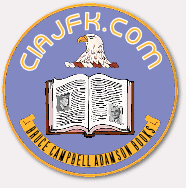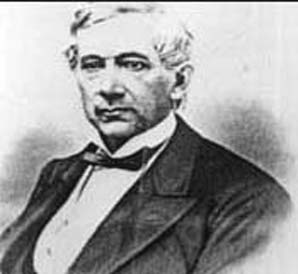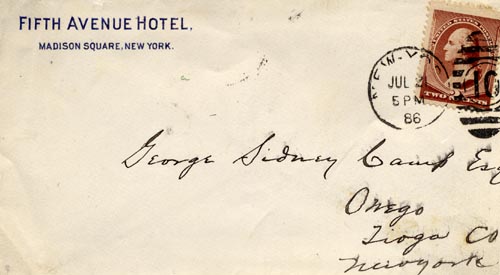











Bruce
Adamson P.O. Box 3511,
Santa Cruz, CA, 95063

Re: Revised Letter and Sketch of George Sidney Camp, One
of the men behind the McGraw Family Estate and Wyoming Valley
 Massacre worst
than Virginia's.
Massacre worst
than Virginia's.

George Sidney Camp,
"I have often wondered would McGraw and Hill publishing company be what it is today?"
Since 1982 I have been a genealogist and came across one ancestor a third-great-uncle by the name of George Sidney Camp "In the great McGraw vs. Cornell lawsuit, involving the three million cap that Cornell could hold at the time of any bequests. Camp was selected to prepare and make the final argument. That argument, for logical cohesion, deep research and legal erudition, has few, if any, equals in the records of New York."
February 20, 1894
Ithaca, NY, Feb. 19---The Cornell University authorities were on hand promptly at the Surrogate's office at 10 o'clock this morning which was the time agreed upon by the respecting counsel in the case for the adjourned hearing in the Fiske-McGraw-Cornell University litigation to begin. Among persons present interested in the suits were Judges Boardman and Countryman, S.D. Halliday, President White, H.W. Sage, Trustee Humphrey, Acting Treasurer Williams, George Sidney Camp; Lieut. Governor Hill....Augustus J. Hathaway, of Tonawanda, N.Y. was the first witness. He testifieed as to the value of the houses and lots in Rochester, docks....lime kiln and quarry property and land in Allegany County belonging to the John McGraw estate. .... pdf 2
Ithaca, N.Y. May 26 -- Judge Marcus Lyon, as Surrogate of Tompkins County, today filed a decision in the famous McGraw-Fiske will case decreeing the legacies of Jennie McGraw-Fiske to Cornell University of $1,500,000 for library purposes to all respects valid....
A vast amount of testimony was taken, and the case was submitted to Surrogate Lyon last November in a series of elaborate arguments covering questions of fact and law and extending over three consecutive weeks, this period being divided between George Sidney Camp, of Oswego, and George F. Comstock, of Syracuse, for the contestants, and Samuel D. Halliday of Ithaca, and Edwin Countryman of Albany, for the university. The alleged invalidity of the legacies to the university was based on the fact that its charter limted its property holdings to a sum not to exceeding $3,000,000.
***********************************************************************
For the estate of Jennie McGraw-Fiske willed millions to Cornell Univeristy. Thomas H. McGraw of Poughkeepsie the son of the principal plaintiff made the following statement:
"I observed that in the interview with Mr. Sage he expressed the opinion that the land grant which caused the property of the univeristy to exceed what hte law allowed was not legally theirs, and should not be included in any accounting of property had..."
Everyone wondered how the founders of Cornell University could have been so foolish as to insert the three-million-dollar limit in the charter. Mr. Cornell was responsible for this. At that time the university was not worth a quarter of that sum, and he did not dream of the immense endowments taht were so soon to come to it. the general sentiment regarding the issue of hte present litigation is that it is a pity so magnificent an endowment, which, placed in a library, would be incalculable good, should go to persons all of whom are so rich that they hardly care of this increase.
On August 21, 1887, Utica, N.Y., Aug. 20---The General Term of court, sitting in Utica, this afternoon handed down the following decision in the Fiske-McGraw case:
In the matter of the estate of John McGraw, deceased, and also in the matter of the estate of Jennie M. McGraw-Fiske, deceased, Willard Fiske, and Joseph McGraw, and others, appellants, against Cornell University and Douglass Boardman, Ex-County....The decree of Tompkins County is reversed, on the ground that Cornell University at the date of the death of Jennie McGraw-Fiske had reached the limit of its charter, and was not entitled to take or hold any of the property and funds given to it by her will, and the proceedings are remitted to the Surrogate with directions to make a distribution of the property and funds remaining in the hands of the Executor, together with any advances and payments heretofore made by him to Cornell University, to the appellants according to their rights as they shall appear, with costs to appellants, payable out of the funds. Opinions by Hardin, Presiding Justice and Merwin Justice. The legacies ot the university aggregated about $1,121,570.
On November 27, 1888 the entire university of Cornell had to be appraised and the final value was estimated at $3,001,418.10 which meant that under the circumstances it could not take the legacies bequeathed by Mrs. Fiske.
Ithaca, Nov. 28--Persons who think that the long litigation between the Cornell University and the heirs of the McGraw-Fiske Fortune is now ended will be disappointed... President Adams said this morning, He said:
"I have not yet learned the details of this latest decision. After all is understood about this decision further action of the university will be decided. The loss of this legacy, which now amounts to $1,000,000, would not affect the present condition of Cornell..."
**********************************************************************
The Highest Court of the Land holds that Cornell Cannot Receive the Gift. They affirmed The Supreme Court of New York establishing the judgment of the Court of Appeals. Fortunately Cornell University is not crippled in any of its departments by its loss. A gift of $500,000 was made from Mr. Henry W. Sage. Mr. Sage was the business partner of Jennie McGraw-Fiske's father, John McGraw.
**********************************************************************
George Sidney Camp was the second son of William and Abigail Camp, born February 5, 1816. Camp, was reared in Owego. Camp's mother Abigail Whittlesey was one of at least sixty who survived the "The Worst Massacre in American history."
On July 3, 1778. More than two hundred Patriots were killed in a battle followed by a massacre, in which the Iroquois raiders hunted and killed fleeing Patriots before torturing to death the thirty to forty who had surrendered. Their original force numbered 360 and they met a force under Tory leader John Butler which included the Iroquois Indians.
Abigail's father Colonel Aspah Whittlesey was leading his gallant Connecticut militia in Wyoming Valley, PA, and the day before the Massacre at Forty Fort he placed his daughter on a raft and sent her down the Susquehanna River to safety with her nurse. Not only did she survive she did not have to witness the slaughter like many other women and children did.
Had he not done this would there be a McGraw publishing company today, there would not have been George Sidney Camp who researched the original deeds of Cornell University to find the hidden clause.
Abigail met her husband William Camp. Two of Abigail's sisters married the brothers of William Camp. Anna Whittlesey married Homer Camp and Laura married Enos Camp. Abigail (Whittlesey) Camp-Strong died at age 81 years, 5 months and 29 days on Oct. 29, 1858. She remarried Stephen Strong the law partner of George Sidney Camp.
As a linguist in French and Latin (old latin) George Sidney Camp had no equal in the profession. As a lawyer he stood in the first rank, with few competitors.
In February of 1832 he entered Yale and at the close of the sophomore year he removed to the University of the City of New York. At Yale he was a winner of the sophomore class, of first prize for English composition.
George Sidney Camp first studied law, first in the office of Honorable Stephen Strong at Owego, and subsequently in the office of Hon. Geradus Clark, at the City of New York, and was admitted to the bar as an attorney May 18, 1838. He practiced law, the first two or three years of his life as a partner of Hon. Thomas W. Clerke, who was afterward elected a Justice of the Supreme Court. On December 16, 1841 he returned to Owego, where he resided till his death.
In the 1841, Camp wrote a book which was then a bestseller entitled "Democracy." Inspired by an encounter with Tocqueville's Democracy in America, Camp at once sought to provide a native evaluation of the same... Camp wrote: "It is our common belief that our government is distinguished in principle from other governments....If a man were seriously to propose for our adoptions monarchical or aristocratical institutions, he would be overwhelmed with public obloquy. We should feel...as if he had been guilty of moral delinquency on a moral question...."
The implications of spreading democracy were discussed by David Brooks and Jim Lehrer and their dialogue was as follows:
DAVID BROOKS: Well, it's come and gone. It's been a debate. There was a guy named George Sidney Camp who wrote a book in 1841 called "Democracy."
JIM LEHRER: I missed that one.
DAVID BROOKS: You missed that one; most everybody else had. But it said -- it was an argument that said democracy should be universal; it should be around the world. And America has an exceptional mission to do that. So that was 1845....-- freedom. Abraham Lincoln said we were the last best hope of earth. The crucial word there is "last," meaning that our system was the final answer. Democracy is the answer in this long history of political systems, and that people have a right to those sorts of freedoms. So it sprung from American history.
In 1851, he had the sole charge, as the attorney of Metcalf and Thurston, to mark out the line of defense and make the necessary preparation to defend an indictment for the murder of his brother-in-law Anson Garrison, Governor Daniel S. Dickinson being the leading and Hon. John J. Taylor, the associate counsel." Governor Dickinson was considered as a candidate for Vice President under President Lincoln. <<<<<< ----- Read more about Daniel S. Dickinson by clicking here.
From 1868 till February 14, 1888, when he died Camp devoted himself, at intervals of professional labor, to the cultivation of his farm of 135 acres, that forms the eastern limit of the village of Owego, and to the rearing of thoroughbred Jersey cattle. To these the methods of modern scientific agriculture have been studiously and liberally applied." Gazette of Tioga County, 1887.
In the mid 1800s George Sidney Camp's name was a household word in the state of New York. His sister married one Joseph Ely and they had a son, George W. Ely, who was named in honor of his uncle. George W. Ely was the youngest Captain ever of the New York Seventh Regiment and became Secretary of the New York Stock Exchange from 1873 to 1899 and again from 1905 to 1919 closing out World War One.
Let me thank you in advance for your interest.
Respectfully submitted,
Bruce Campbell Adamson, P.O. Box 3511, Santa Cruz, CA, 95063
Body
| © 2004 Bruce Campbell Adamson info@ciajfk.com |